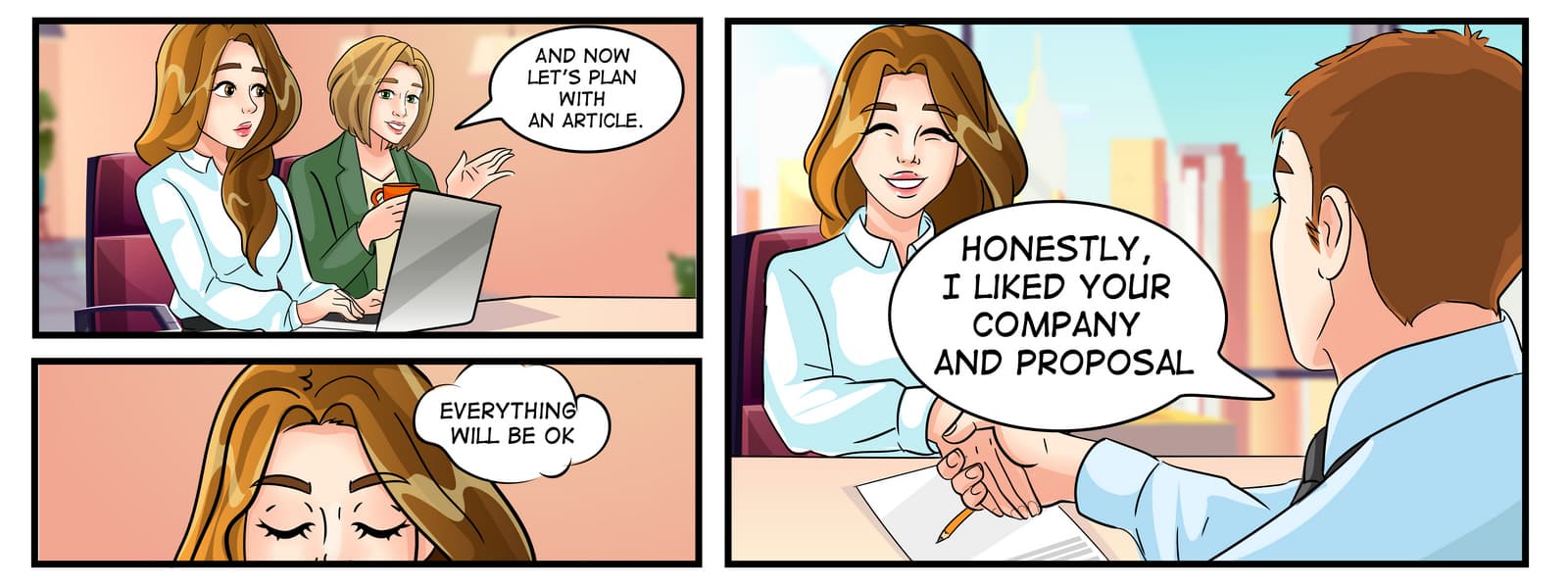How to prepare for an interview? Tips and tricks

The interview is a key stage in the recruitment process. And it is probably the most concentrated in terms of information: in 20-30 minutes the recruiter or HR shall understand how competent the candidate is, what his professional and human qualities are, to which extent he is “the one needed”. Therefore, when preparing for the interview it is important to see the whole “scenario” of the interview, where the “main role” belongs to the applicant, and the “directing” – to the recruiter of HR.
So, how to prepare for an interview to make it as effective as possible?
Quality job interview preparation will make it possible to get the most out of the future meeting, to win the candidate’s favor and to get all the necessary information on the questions of interest, spending exactly the amount of time and effort that were planned. If the recruiter carefully prepares for the interview and interviewing, the recruitment process is much more effective, and the risk of missing “his” candidate is noticeably reduced.

A checklist for a successful interview
Based on the specific task and the recruitment methods used, the recruiter chooses the type of interview according to several indicators: structure, number of participants, purpose, and methods of conducting the interview. We talked about this in detail in the article about types of interviews.
Having decided on the interview format, it is important for the newbie recruiter to study the resume in detail, check the technical points and to have everything planned.
1. Reviewing the resume in detail
Preparing for an interview, it’s important for the recruiter to thoughtfully reread, examine the resume once again, picking up the “clues”.
For example, it is worth thinking if the candidate changes jobs too often or, on the contrary – holds the one position without promotion and growth for a long time. Or – the candidate used to work in different areas on different unrelated positions. Clarification of these questions at the interview is an important part of the recruiter’s job.
In addition, you can try to check basic job and career information from your resume through Facebook, LinkedIn, or Google.

2. Technical preparation
It is not just the recruiter who gets an impression of the interview. The candidate also forms his opinion of the company, and it is important for it to be positive. Therefore, it will not be superfluous to double-check the status on the following points:
- the candidate is informed of the date/time/place of the interview;
- a separate room/negotiations room has been booked;
- security/reception is aware of the candidate’s visit, a pass has been issued;
- a stable Internet connection is available in case of a remote interview.
HR, staff or department managers are informed of the interview time and have confirmed their attendance (in case of a linear or serial interview)
The interview shall be planned in advance. Be sure to put it on your calendar so you don’t have a situation where you need to be in two places at once. These seem to be little things that go without saying, but a failure in one of them can throw even the experienced professionals off-balance.
3. Interview scenario plan
As a part of staff planning, the recruiter usually has interview templates for various positions. If you do not have any – it is recommended to prepare them even before you start inviting candidates for interviews.
There are 7 main points worth highlighting in the plan.
- Introduction of the candidate. Everything is standard here – last name, first name, middle name, age, etc.
- Current or previous jobs. Here it is important to know where the candidate used to worked or works (company, field of activity), what tasks he/she used to solve/solves in the workplace, what is his/her area of responsibility.
- Motivation. It is important to clarify the candidate’s professional, career and financial motivation. It is worth asking him to tell about his positive and negative experiences in different companies, interaction in the team, with management, etc. It is also important to clarify why the candidate considers certain situations good or bad.
- Achievements. Here it is better to use the STAR (Situation, Task, Action, Result) principle. The applicant should describe the problem/task that he/she faced, what actions were done, and what fruits are brought.
- Income. During an interview the recruiter should clarify the candidate’s expectations regarding the salary, as well as additional incentives and benefits – bonuses, awards, social benefits. If the company has a fixed salary, at this stage the recruiter should convey all the information to the applicant.
- Search history. It can be very important for recruiting if the competitors have been trying to attract an applicant. Also, clarify how long the specialist has been looking for a job. If the search takes a long time, that’s a signal to the recruiter that there may be room for some ulterior motives/disputes.
- Next steps. At this stage, the recruiter should provide the candidate information about the position, explain his/her role in the project, clarify the timing when the candidate can go to work or when it will be decided on his/her candidacy.

It is important to keep in mind that the recruiter conducts the interview, not the other way around. Even if you have a free interview, it should include all the important and if necessary tough questions. The recruiter’s job is to get as much information about the applicant as possible, not to chat about life. It’s important to monitor the applicant during the process if he or she gets distracted by gently bringing the conversation back on track.
The optimal interview time is about 30 minutes. This is enough to get the basic information and not overwhelm the candidate.
It is useful to take notes during the interview. This is very important, because if you (even intuitively) pay attention to any nuance, it can become a key in deciding on the candidate.
If the applicant has other job offers, but he is the person you are looking for, try to “sell” the vacancy to him, focus on the benefits for the candidate – the salary scale (as a “range”), benefits package, bonuses, etc. It’s important to remember that an interview is not a meeting between an applicant and a recruiter, it’s a meeting between an applicant and a company. Just as you get information about the candidate based on the results of the interview, so should the candidate get attractive but objective information about the company.
How to understand that the interview was successful?

As we said above, the recruiters and hiring managers conduct interviews in a variety of formats, including combined formats. However, regardless of the format used, there are some markers that will indicate success:
- Information content. The interview gave the recruiter/HR as much information as possible to draw conclusions or make a decision about the candidate (fit/failure to meet search criteria or competencies).
- Accuracy. All information obtained is unambiguous and does not raise questions, it includes only concrete, not “speculated” facts about the applicant. There is no need to call and ask for additional clarifications.
- Detailed notes. All the results of the meeting can be documented and a quality, comprehensive report can be compiled for the manager/customer.
- An internal advantage is when the recruiter clearly and happily realizes that everything went “according to plan”, he brilliantly completed the task and approached the stage of filling the vacancy.
The interview has been conducted. What’s next?
If the candidate is really suitable, then you need to coordinate his candidacy with the management and inform the applicant about the successful interview. But what to do if there are doubts? In that case, you should schedule another interview, consult with colleagues or take time out to think carefully about the result.

An important question – is it worth refusing a person directly at the interview? Indeed, there are situations when the recruiter or hiring manager understands that the applicant is completely unsuitable for the position. In this case it is better to thank for the interest shown and to take a pause for a decision, informing the applicant about the waiting period. It is ethical to give an answer no later than this deadline, be honest, not to make the person wait too long. Sometimes the recruiter (especially if it is a mass recruitment) tells you right away that he or she will notify the candidate within 2-3 days if a positive decision is made. In this case, the applicant himself will stop waiting for a response after the deadline has passed.
Unfortunately, recruiters often do not consider it necessary to give feedback at all if a candidate is not suitable, which is extremely impolite and unhumane. This negatively affects both the company’s image and the recruiter’s own reputation. Therefore, it is unprofessional and shortsighted to play the silent game. Who knows how and where you will meet in the future?
Conclusions
If you just start your career in recruitment, we recommend you to prepare for the interview thoroughly by using planning, gathering as much data on the candidate as possible and recording everything. This is a rather painstaking and responsible stage of selection and hiring process, which directly affects the effectiveness of the search. It can be greatly facilitated by ATS software, which allows you to organize and monitor the whole stage – from interview scheduling to writing reports on the candidates.
In the next article for the newbie recruiters, we will look in more detail at the features of in-person, telephone and video interviews, and will analyze all the nuances.